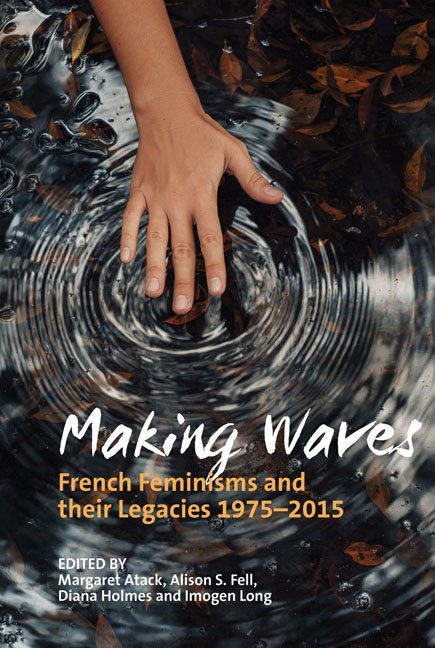Book contents
13 - Voix Blanche? Annie Ernaux, French Feminisms and the Challenge of Intersectionality
Summary
In the discussion of the legacies, ruptures and continuities of French feminisms since 1975, the choice of Annie Ernaux as a case study seems both appropriate and strange: appropriate because her writing precisely spans the period in question, with her first book, Les Armoires vides, published in 1974, and her most recent, Memoire de fille, in 2016. Her writing also engages with feminist themes throughout: illegal abortion in the 1960s (Les Armoires vides, 1974; L’Evenement, 2000); marriage and motherhood (La Femme gelee, 1981); the mother– daughter relationship (Une femme, 1988; La Honte, 1997; ‘Je ne suis pas sortie de ma nuit’, 1997); and the difficulties for women of expressing their sexuality in heteropatriarchal contexts (La Honte, 1997; Passion simple, 1992; Se perdre (Abandonment), 2001; L’Occupation, 2002; Memoire de fille, 2016). The choice is nonetheless ‘strange’ because, even though she joined MLAC and Choisir in the 1970s, Ernaux was not a feminist activist at the height of the second wave. She commented in the communist newspaper L’Humanite in 2014 that, as a teacher in a French provincial town, married to a middle-class professional, she had not felt able to sign the Manifeste des 343: ‘In 1971, it was out of the question for me to do this. It was unthinkable. I was a nobody.
What's more I was married to an executive and declaring publicly that I had had an abortion would have had the effect of an exploding bomb’ (Kaci, 2014). Ernaux's name is not up there in the lights of second wave celebrity, and yet undoubtedly her thinking and writing are profoundly implicated in, and influenced by, second wave and more recent French feminisms. It is perhaps her initial position as an outsider – not in Paris, not operating in the radical chic circles of the 1970s or any decade since –– which makes her a particularly interesting subject for this discussion. Before she became known as a writer Ernaux was on the provincial periphery, separated by geography and culture from the debates and demonstrations happening in Paris and other cities, and yet, like many ordinary women, she was beginning to reflect on her experience as a wife and mother through the prism of feminism.
- Type
- Chapter
- Information
- Making WavesFrench Feminisms and their Legacies 1975–</I>2015, pp. 201 - 214Publisher: Liverpool University PressPrint publication year: 2019



